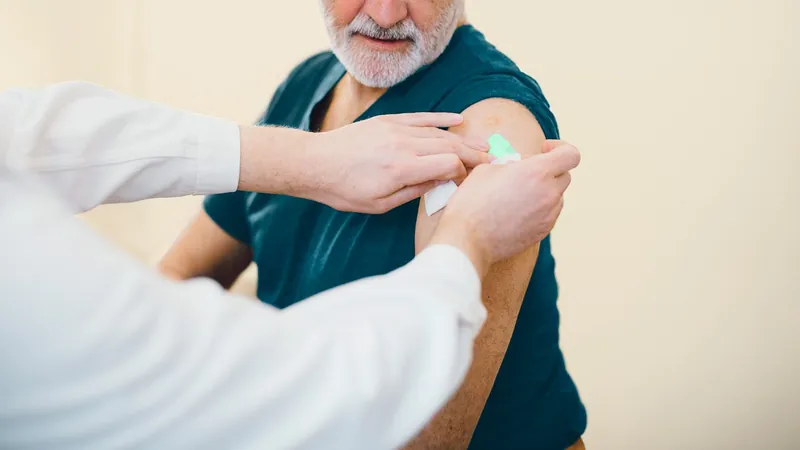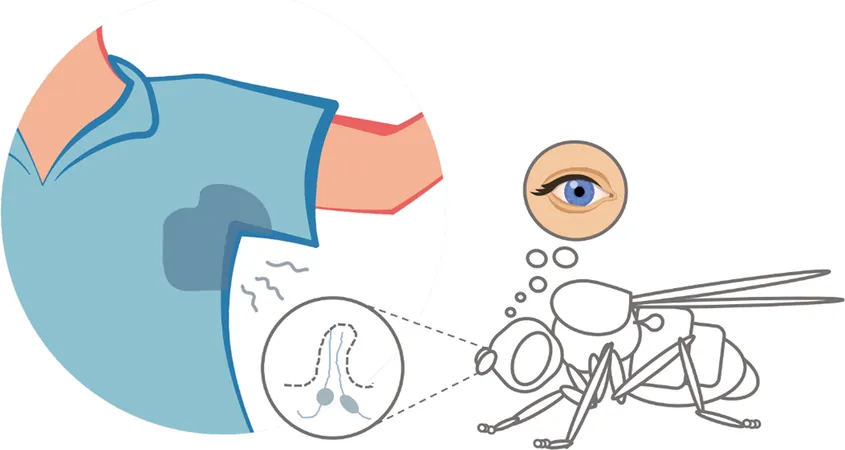
Shingles Vaccine Could Slash Heart Attack and Stroke Risks—Here’s How!
2025-05-08
Author: Daniel
Groundbreaking Study Links Shingles Vaccine to Heart Health
In an eye-opening revelation, a recent study reveals that receiving the shingles vaccine may drastically reduce the risk of heart disease. Conducted with over a million South Korean adults aged 50 and older, the findings suggest a compelling connection between vaccination and cardiovascular health.
Vaccination Wins: Key Findings Unveiled
The investigation highlighted the stunning benefits of the live zoster vaccine—a weakened form of the virus that causes shingles—for those who received it. After an average follow-up of six years, vaccinated individuals showed a remarkable 23% lower likelihood of encountering cardiovascular issues like heart attacks and strokes compared to their unvaccinated counterparts.
Specific reductions in risks were as follows: - **Stroke**: 26% less likely - **Heart Attacks**: 35% less likely - **Heart Failure**: 26% less likely - **Atrial Fibrillation**: 29% less likely Males enjoyed even greater protection, exhibiting a 27% reduced risk compared to 20% for females, while those under 60 experienced more significant benefits.
The Mechanism Behind the Protection
How does this vaccine contribute to heart health? Experts like Dr. Sharon Curhan, an epidemiologist at Brigham and Women’s Hospital, emphasize that shingles can lead to blood vessel damage and inflammation, heightening heart disease risks. Thus, by preventing shingles, the vaccine could significantly mitigate these dangers.
Limitations and Considerations of the Study
While these findings are promising, they stem from observational data—not controlled experiments. It’s crucial to note that results may vary across different races and possibly differ between the older live virus vaccine and the newer Shingrix vaccine prevalent in the U.S.
The Broader Health Implications
Past studies align with these results, suggesting a notable increase in cardiovascular risks associated with shingles. Research tracking over 200,000 Americans revealed that shingles patients faced up to a 38% higher risk of stroke and a 25% heightened risk of coronary heart disease. A comprehensive review of multiple studies indicated a 31% increased risk of cardiac events shortly after the onset of shingles.
Who’s at Risk for Shingles?
Shingles primarily affects those who’ve had chickenpox, as the dormant virus can reactivate later in life. Individuals over 50 and those with weakened immune systems are particularly vulnerable. The CDC recommends the Shingrix vaccine for Americans aged 50 and above, offering enhanced protection against this reactivation.
In summary, the shingles vaccine may wield dual benefits: protecting against shingles and significantly enhancing heart health. This study opens a new chapter in understanding how vaccines can affect our lives beyond immediate diseases, showcasing the potential for preventive measures to save lives in the long run.



 Brasil (PT)
Brasil (PT)
 Canada (EN)
Canada (EN)
 Chile (ES)
Chile (ES)
 Česko (CS)
Česko (CS)
 대한민국 (KO)
대한민국 (KO)
 España (ES)
España (ES)
 France (FR)
France (FR)
 Hong Kong (EN)
Hong Kong (EN)
 Italia (IT)
Italia (IT)
 日本 (JA)
日本 (JA)
 Magyarország (HU)
Magyarország (HU)
 Norge (NO)
Norge (NO)
 Polska (PL)
Polska (PL)
 Schweiz (DE)
Schweiz (DE)
 Singapore (EN)
Singapore (EN)
 Sverige (SV)
Sverige (SV)
 Suomi (FI)
Suomi (FI)
 Türkiye (TR)
Türkiye (TR)
 الإمارات العربية المتحدة (AR)
الإمارات العربية المتحدة (AR)